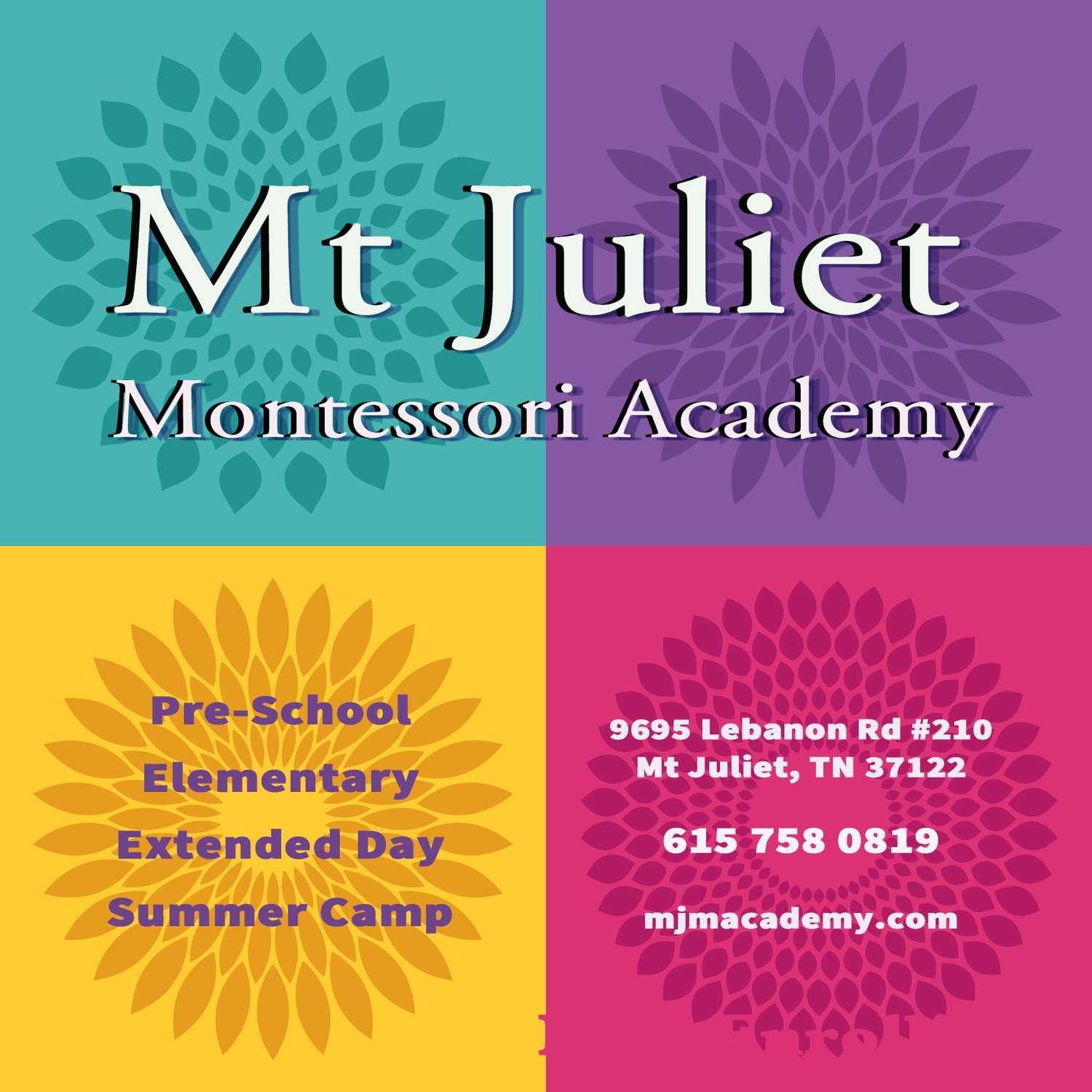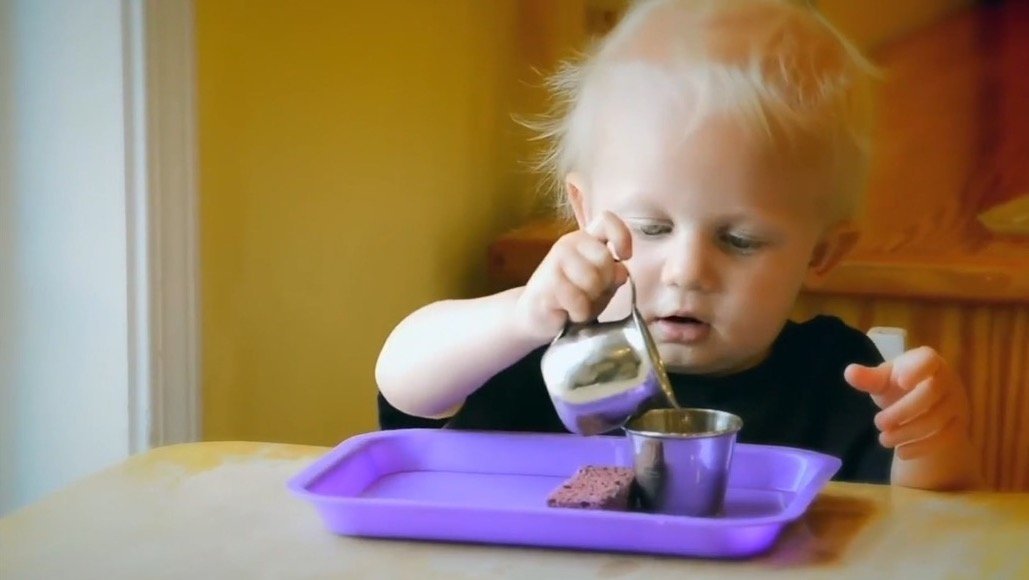
What Is Montessori?
Montessori schools are found all over the world and are considered among the gold standard in school reform. They are famous for creating an astounding number of accomplished leaders in every walk of life, from science, medicine, and law, to business, entertainment, and community leadership.
What makes them different?
Montessori was a scientist who studied how children develop their intelligence. She recognized that every child is capable of amazing things but that each child learns in their own way at their own pace. She pioneered developmental brain science and inspired a global network of schools where specially trained Montessori teachers “follow the child” through careful observation, allowing each student to reveal her strengths and weaknesses, interests and anxieties, and strategies that work best to facilitate the development of her human potential.
Montessori classrooms are carefully designed to meet the needs and interests of the child and will work more effectively because they don’t fight human nature. This focus on the “whole child” led Dr. Montessori to develop a very different sort of school from the traditional adult-centered classroom.
The Montessori Classroom
Montessori education is offered at every age level. At Mt. Juliet, we offer programs for Toddlers (age 18 months to 3), Primary (ages 3 to 6), and Elementary (grades 1 to 6.)
Montessori classrooms are bright, warm, and inviting. They are filled with plants, animals, art, music, books, and interest centers filled with intriguing learning materials, fascinating mathematical models, maps, charts, fossils, historical artifacts, computers, scientific apparatus, perhaps a small natural science museum, and animals that the children are raising.
You will not find rows of desks in our classrooms. Montessori learning environments are set up to facilitate student discussion and stimulate collaborative learning. At one glance, it is clear that our children feel comfortable and at home.
Students will typically be found scattered around the classroom, working alone or with one or two others. They will tend to become so involved in their work that we cannot help but be tremendously impressed by the peaceful atmosphere.
It may take a moment to spot the teachers within the classrooms. They will be found working with one or two children at a time, advising, presenting a new lesson, or quietly observing the class at work.
The Montessori classroom is not the domain of the adults in charge but rather a carefully prepared environment designed to facilitate the development of the children’s independence and sense of personal empowerment.
This is a true community of young children. They move freely within the rooms, selecting work that captures their interest rather than passively participating in lessons and projects selected by the teachers.
In a real sense, even the very youngest students in Montessori care for their own child-sized environment. When they are hungry, they prepare their own snack and drink. They go to the bathroom without assistance. When something spills, they help each other carefully clean things up. Parents are often amazed to see small children in Montessori classrooms cut raw fruits and vegetables, sweep and dust, carry pitchers of water, and pour liquids with barely a drop spilled. These little ones normally go about their work so calmly and purposely that it is clear to even the casual observer that this is their environment: The Children’s House.
The Montessori classroom is commonly referred to as a prepared environment. This name reflects the care and attention that is given to creating a learning environment that will reinforce the children’s independence and intellectual development.
Montessori Teaches Children to Think, Collaborate, and Discover
Our program is designed to help each of our students discover and develop his or her unique talents and possibilities. We treat each as a unique individual learner. We know that no two students will learn at the same pace, nor will they necessarily learn best from the same teaching methods, and our goal is to be flexible and creative in addressing each student as a unique individual.
In Montessori, students and teachers learn to collaborate in the process of education rather than mindlessly compete. Our students discover their own innate abilities and develop a strong sense of independence, self-confidence, and self-discipline. In an atmosphere in which children learn at their own pace and compete only against themselves, they learn not to be afraid of making mistakes. They quickly find that few things in life come easily, and they can try again without fear of embarrassment.
One way of thinking about the difference between our approach and one that is more traditional is to consider that while learning the right answers may get our children through school, learning how to become a life-long independent learner will take them anywhere! Our children are learning to think, observe, and reflect, not memorize and quickly forget.
Rather than presenting students with many right answers, their teachers ask the right questions and lead the children to discover the answers themselves. Learning will become its own reward, and each success will fuel their desire to discover even more.
The Elementary students are encouraged to do their own research, analyze what they have found, and come to their own conclusions. The teachers encourage our children to think for themselves and become actively engaged in the learning process.
Montessori classes are organized to encompass a two- or three-year age span, allowing younger students to experience the daily stimulation of older role models, who in turn blossom in leadership responsibilities. Students learn “with” each other and “from” each other. We find that the best tutor is often a fellow student who is just a bit older.
Some parents worry that having younger children in the same class as older ones will leave one group or the other short-changed. They fear that the younger children will absorb the teachers’ time and attention or that the importance of covering the Kindergarten curriculum for the five-year-olds will prevent teachers from giving the three- and four-year-olds the emotional support and stimulation that they need. Both concerns are misguided.
Working in one class for two or three years allows students to develop a strong sense of community with their classmates and teachers. The age range also allows especially gifted children the stimulation of intellectual peers without requiring that they skip a grade and feel emotionally out of place.
Preparing Tomorrow’s Innovative Thinkers Today
In a world of rapid change and new discoveries, we can only guess at the skills our children will need to succeed in the 21st century. Now, more than ever, the essential lesson is learning how to learn.
The most important years in our children’s education are not high school and college but their first twelve years of life. This is when their character and values, self-image, basic skills and knowledge, and appreciation for culture and the arts are formed.
Montessori offers our children a world-class education, along with an education of the heart, that nurtures their self-confidence, personal creativity, and entrepreneurial spirit.
It offers them the most challenging academic program that they can handle in a course of study that includes the Junior Great Books, creative writing, unified mathematics, geometry, pre-algebra, history, geography, economics, philosophy and ethics, computers, botany and zoology, the physical sciences, foreign language study, art, music, dance, and physical education.
We can see our children as they truly come to love learning and begin to discover their true potential as young men and women.
Montessori’s goal is to nurture their intelligence and creativity, helping our child become renaissance individuals in the intellectual tradition of Thomas Jefferson, Buckminster Fuller, and Maria Montessori.
Granted, this lies beyond the scope of traditional education, but then Montessori schools are different.
As families, we come to Montessori schools to give our children an outstanding preparation for high school, college, and life.




